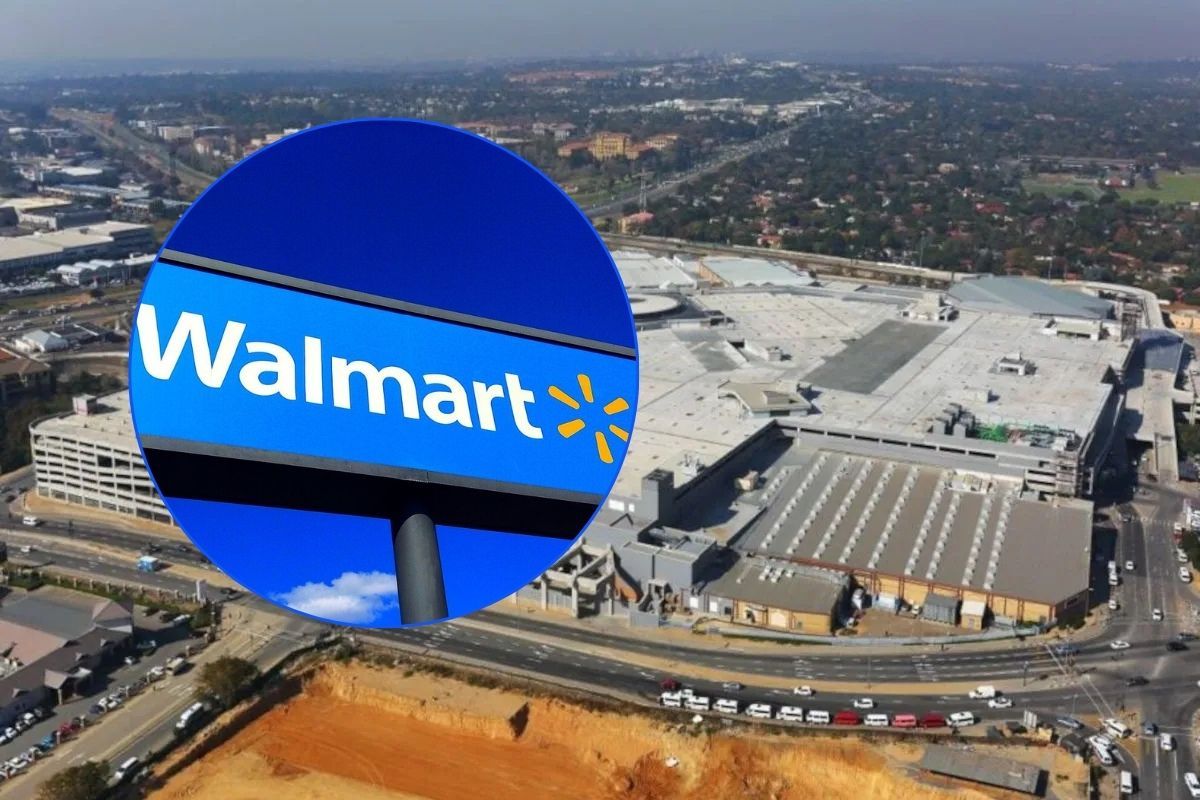
Walmart has planted its flag in South Africa in a way that is visible to shoppers. The company has opened its first Walmart branded store at Fourways Mall in Johannesburg, taking over a space that used to be a Game outlet operated under Massmart. This is more than a new sign on a storefront. For Walmart it is the first time customers on the continent will see the global brand in person, and it signals a shift from quiet ownership to public retail presence in one of Africa’s most competitive markets.
A deliberate step after years of presence in the background
Walmart’s move follows its long relationship with Massmart, a partnership that began with a 51 percent stake in 2010 and culminated in a full acquisition in 2022. That acquisition allowed Walmart to reconfigure ownership and operations and to delist Massmart from the Johannesburg Stock Exchange. The Fourways rollout shows Walmart is ready to move from ownership to active brand building across South Africa.
In September 2025 Walmart publicly announced plans to open Walmart branded stores in South Africa, describing the expansion as a commitment to making affordable, quality merchandise available to local customers. The Fourways Mall store is the clearest sign to date that those plans are being acted on.
Why the timing and location make sense
South Africa is a market where price and convenience matter. Retail analysts see Walmart applying its Every Day Low Price strategy to attract cost conscious consumers while also catering to a fast growing digital shopper base. The country’s e commerce sector has expanded rapidly in recent years, encouraging traditional retailers to double down on both physical and online channels as complementary sales engines. Reports tracking the market put online retail in the multi billions of dollars, a growth story that makes Johannesburg a logical place for Walmart to debut a branded outlet.
Competing in a crowded, localised market
Walmart is stepping into a retail landscape dominated by strong local players including Shoprite, Pick n Pay, Woolworths, and SPAR. Those chains have deep supplier networks, established customer loyalty, and local market know how. Observers say Walmart’s global buying power is an advantage but not a silver bullet. Success will require local sourcing, tight supplier partnerships, and sensitivity to how South African shoppers buy groceries and household goods.
Rather than building from scratch, Walmart appears to be rebranding existing Massmart stores such as Game and Makro in the early phase. That approach reduces upfront costs, speeds rollout, and gives Walmart a live testing ground to see how South African customers respond to price positioning, assortment choices, and services like click and collect.
What shoppers and suppliers can expect
From a shopper’s point of view expect a familiar Walmart proposition: a wide assortment of general merchandise and groceries with an emphasis on value. The company has said the stores will carry both fresh food and general merchandise and that part of the stock will be sourced from South African suppliers. For local suppliers and manufacturers, that could mean new purchasing scale and access to a wider national network, provided they meet quality and pricing requirements.
For employees and managers, the shift will require operational changes. Massmart’s existing teams will play a crucial role during the rebrand and integration. Walmart will need to align logistics, inventory systems, pricing strategies, and customer service standards while respecting local practices and labour expectations.
Risks and realistic expectations
No major retailer has an automatic pass in South Africa. The grocery business is hyper local and margins are tight. Consumers expect freshness and consistency and many prefer shopping formats that fit their routines, whether that is a local mall, a small neighbourhood store, or online delivery. Walmart must balance global playbooks with local adaptation: choose the right assortment for urban shoppers, integrate efficient supply chains for perishables, and use competitive pricing without eroding supplier relationships.
At the same time Walmart’s entry points to digital shoppers are critical. South Africa’s online retail sector has grown rapidly and omnichannel convenience will be a key battleground. Walmart’s global experience in blending physical stores with online fulfilment gives it tools to compete, but execution will determine whether those tools pay off locally.
The broader picture
This rollout signals a change in strategy for Walmart in Africa. After years inside Massmart, the retailer is now comfortable making the Walmart brand visible and accountable to South African consumers. If rebranding continues and is paired with investments in supply chain, local buying, and digital services, the result could be stronger competition, more choices for consumers, and new opportunities for local suppliers who can scale to meet demand.
For shoppers, competition usually means better prices and broader choice. For suppliers, it can mean higher standards and larger orders. For the retail sector, it raises the bar for omnichannel service and operational efficiency.
The Fourways Mall store may be the first visible step, but it is a meaningful one. It tells customers, suppliers, and competitors that Walmart intends to test, adapt, and expand. How fast and how successfully will depend on local partnerships, smart use of digital channels, and the company’s willingness to tune global strategies to South African realities.
Stay updated with the latest farming tips and agriculture industry news from Africa by subscribing to our newsletter. Don’t miss out on valuable insights and updates. Follow us on Twitter, LinkedIn, and Facebook to join our farming community and stay connected with us.


















